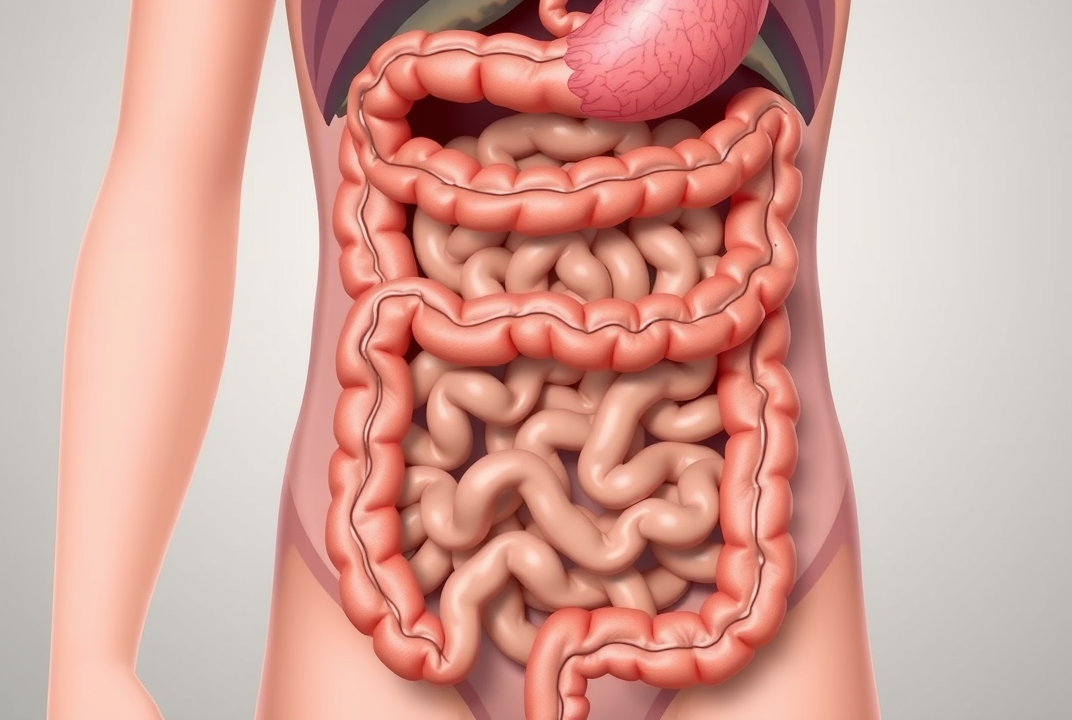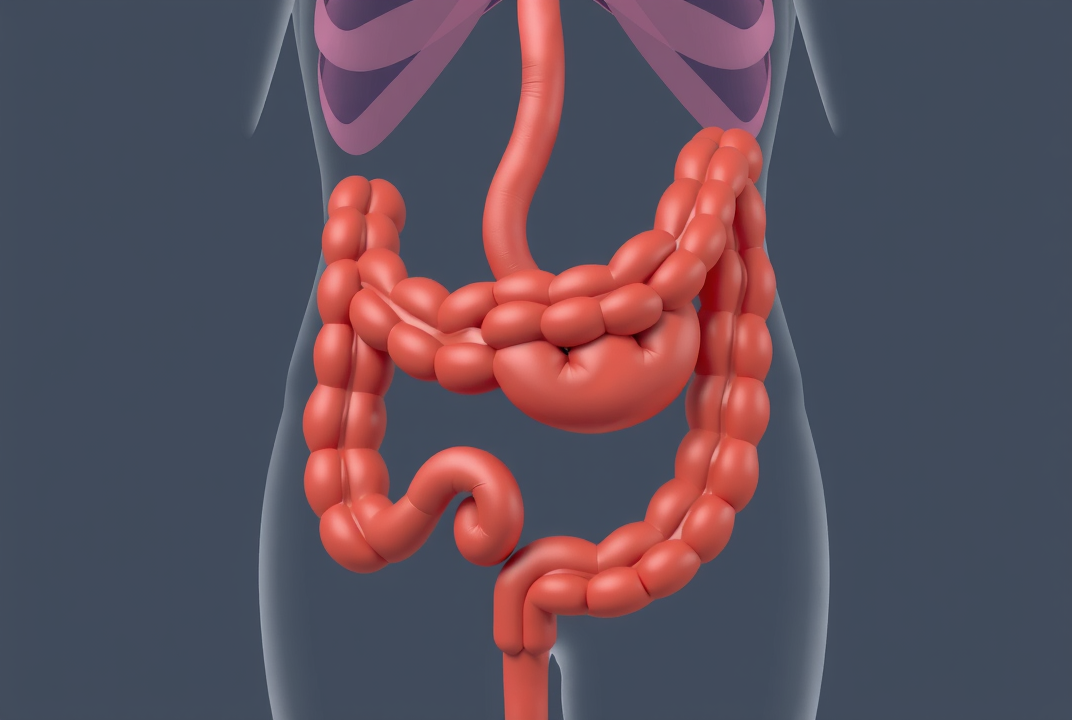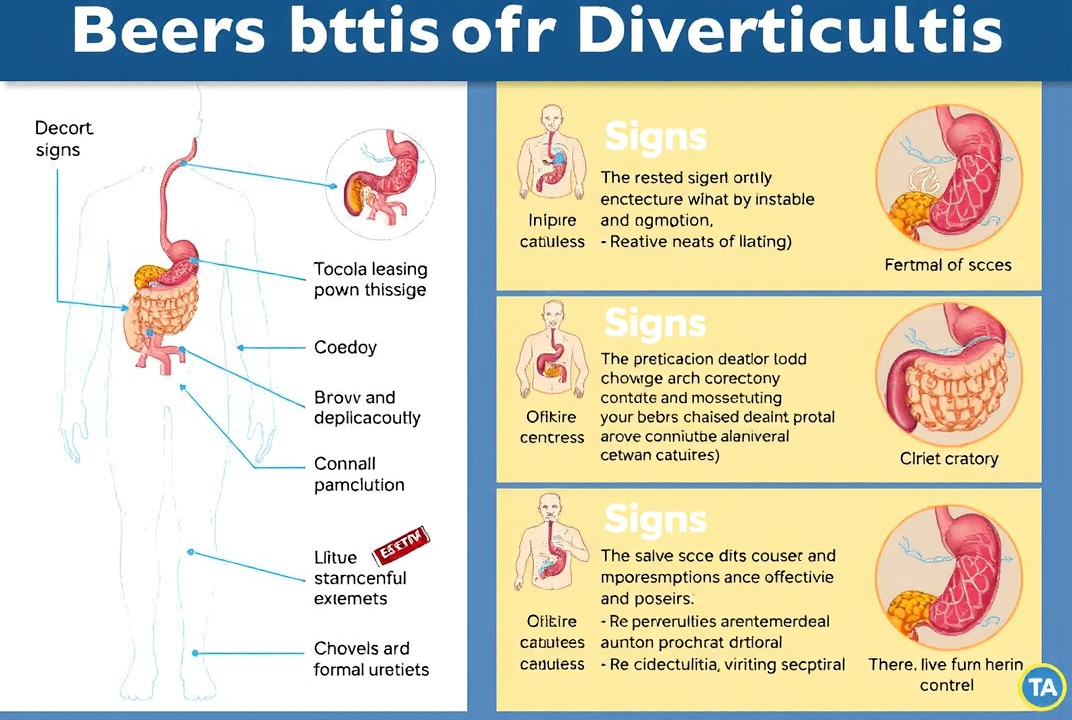Identifying Early Signs of Diverticulitis Flare-Ups

Introduction
Did you know that diverticulitis affects nearly half of adults by the age of 60? This condition can lead to painful flare-ups that disrupt daily life. Understanding the early signs of a diverticulitis flare-up is crucial for timely intervention and effective management. This article will guide you through the 10 warning signs to watch out for, helping you maintain better health awareness.
What is Diverticulitis?
Before diving into the symptoms, it’s essential to comprehend what diverticulitis is. Diverticulitis occurs when small, bulging pouches (diverticula) in the digestive tract become inflamed or infected. It's a common condition, particularly in older adults, and recognizing its early symptoms can prevent complications.

10 Early Signs of a Diverticulitis Flare-Up
Here’s a comprehensive guide to the early signs that might indicate a diverticulitis flare-up:
-
Abdominal Pain Pain, particularly in the lower left side of the abdomen, is a common indicator of a flare-up. This pain may become more severe over time.
-
Bloating Feeling unusually full or experiencing significant bloating can signal that something isn't right within your digestive tract.
-
Changes in Bowel Habits Shifts in regular bowel movements—such as diarrhea or constipation—are often early signs.
-
Nausea and Vomiting If you find yourself feeling nauseous or vomiting without any apparent reason, it can be linked to a diverticulitis episode.
-
Fever and Chills A spike in body temperature along with chills can accompany an inflammation episode.
-
Loss of Appetite A noticeable decrease in your appetite might occur in conjunction with other symptoms.
-
Blood in Stool Any presence of blood should be taken seriously as it might indicate that the diverticula are inflamed and bleeding.
-
Fatigue Feeling unusually tired despite adequate rest can be related to ongoing digestive issues and inflammation.
-
Back Pain Sometimes diverticulitis pain radiates to the lower back, making it another potential sign.
-
Urinary Issues Increased frequency or pain during urination can occur, indicating a nearby inflammation.

Managing a Diverticulitis Flare-Up
Identifying the early signs is just the first step. Management involves medical intervention and lifestyle adjustments. Here’s what you can do:
-
Consult a Healthcare Provider: Always get a professional opinion if you suspect a flare-up.
-
Dietary Changes: A diet rich in fiber can help prevent symptoms. Avoid foods that trigger discomfort.
-
Stay Hydrated: Adequate fluid intake assists in digestion and maintaining bowel regularity.
-
Monitor Symptoms: Keep a diary of any symptoms to discuss with your healthcare provider.
Common Questions About Diverticulitis
Q: What causes diverticulitis flare-ups? A: Triggers can include a low-fiber diet, lack of exercise, and certain medications.
Q: Are there long-term consequences if left untreated? A: Yes, complications can include abscess formation, fistulas, and bowel obstruction.
Q: Can it recur? A: Yes, some individuals experience recurrent episodes, necessitating ongoing management.

Conclusion
Recognizing the signs of a diverticulitis flare-up early can significantly improve your health outcomes by allowing you to take timely action. It's important to listen to your body and seek medical advice when necessary. Stay attentive to the symptoms, maintain a healthy lifestyle, and consult healthcare professionals for the best care strategy. Encourage others to be vigilant about their digestive health by sharing this information.